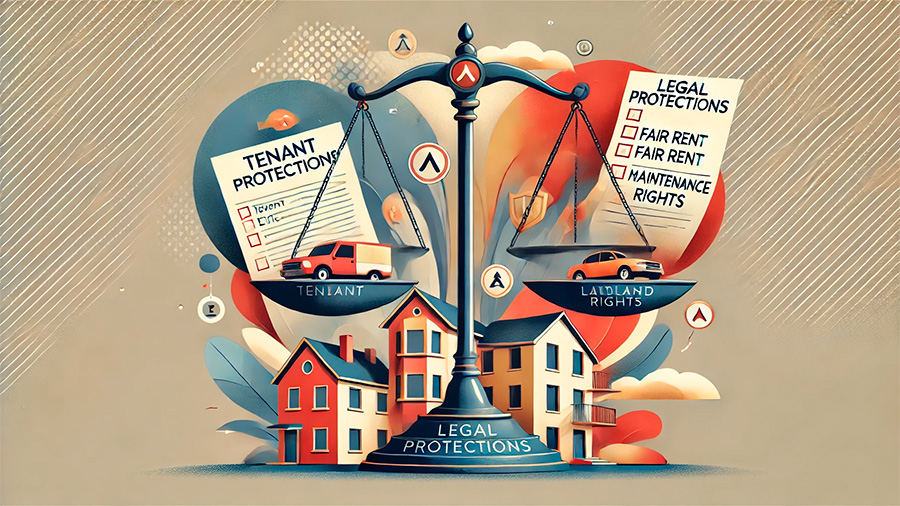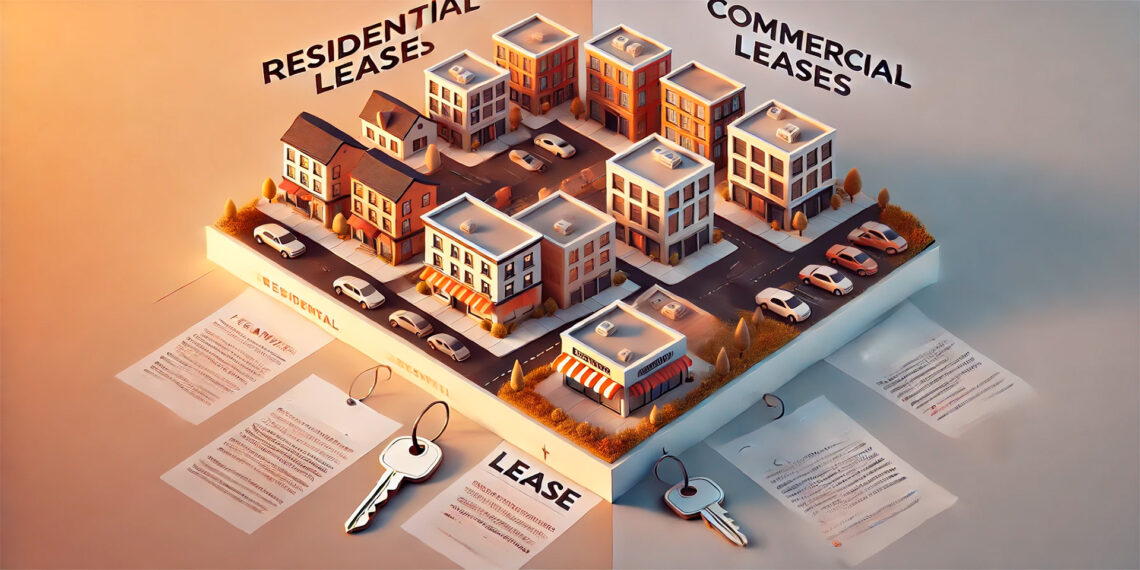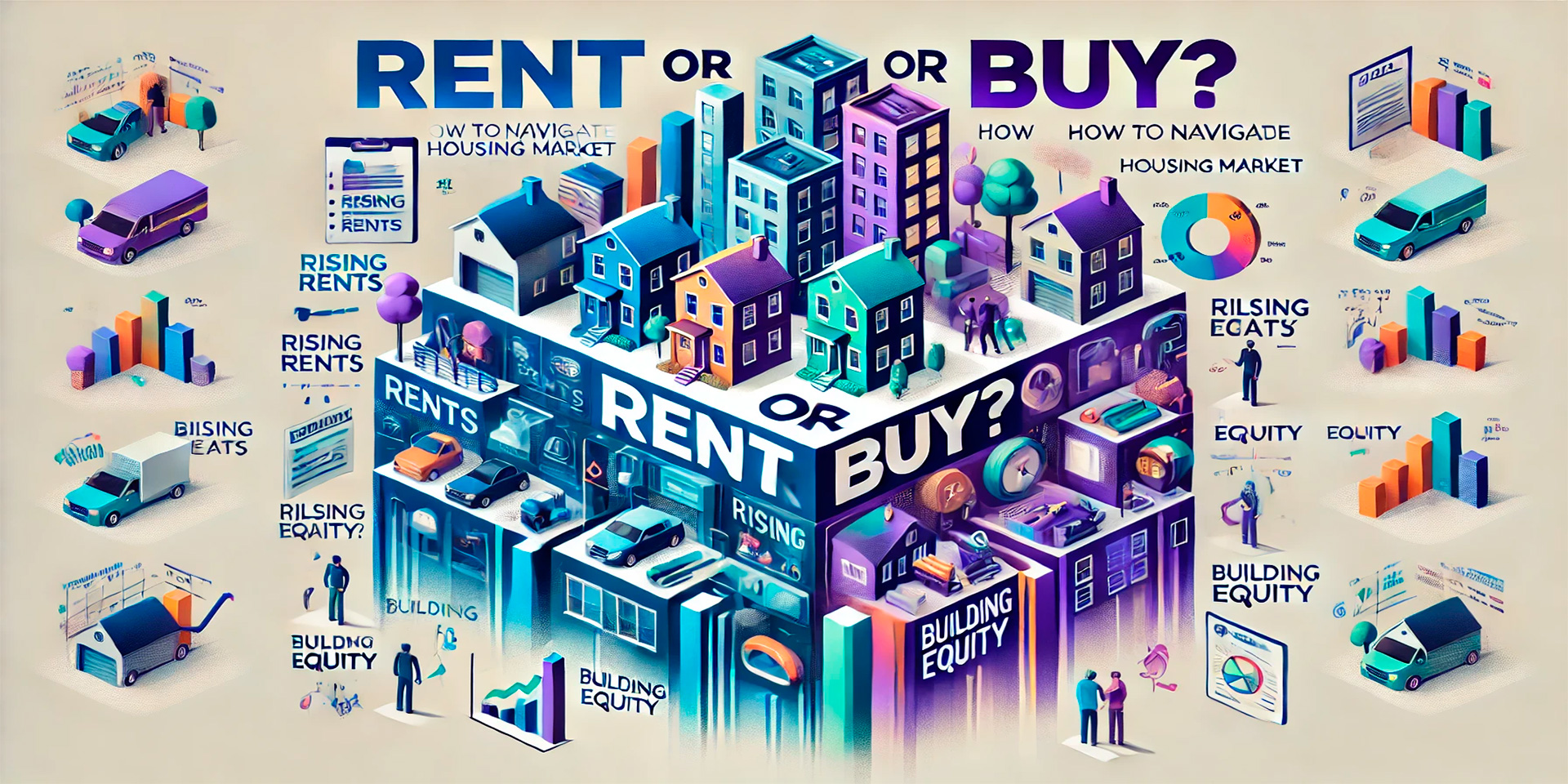When leasing a property, it’s essential to understand the key differences between residential and commercial leases. While both types of leases involve renting property, they cater to different needs and operate under distinct rules and expectations. Whether you’re looking for a place to live or a space to run your business, choosing the right type of lease is crucial for ensuring the terms align with your specific situation. This article explores the important distinctions between residential and commercial leases to help you make an informed decision.
Purpose and Use of the Property
The most fundamental difference between residential and commercial leases is the purpose for which the property is leased.
Residential Leases
Residential leases are designed for individuals or families seeking a place to live. The primary use of the property is for housing purposes, meaning it must meet the living standards and zoning requirements of residential areas. These leases cover homes, apartments, and condominiums and are governed by tenant protection laws that aim to ensure safe and fair living conditions for tenants.
Commercial Leases
Commercial leases, on the other hand, are intended for business use. Tenants lease the property to run a business, such as retail shops, offices, or industrial operations. Commercial leases are typically more complex than residential ones, as they must account for business-specific needs, such as zoning regulations, property customization, and the impact on foot traffic or customer access. These leases often come with fewer protections and legal requirements for the tenant, reflecting the assumption that businesses are more equipped to negotiate favorable terms.
Length and Flexibility of Lease Terms
Another key distinction between residential and commercial leases is the length and flexibility of the lease terms.
Residential Lease Terms
Residential leases are typically short-term agreements, often lasting one year, though they can be as short as six months or even month-to-month. These leases tend to renew automatically or with minimal renegotiation. Residential leases also tend to be more standardized, offering tenants protection and stability, with clear regulations on rent increases, maintenance, and evictions.
Commercial Lease Terms
Commercial leases, in contrast, are usually longer-term agreements, often lasting three to ten years. This extended period provides stability for both the tenant and landlord, particularly for businesses that rely on location and foot traffic to build their customer base. Unlike residential leases, commercial leases are highly negotiable, allowing businesses to tailor the terms based on their specific needs, whether that’s customization of the property or flexibility with rent structures.

Legal Protections and Tenant Rights
Legal protections and tenant rights differ significantly between residential and commercial leases.
Residential Tenant Protections
Residential leases are governed by laws that protect tenants’ rights, including regulations around security deposits, maintenance requirements, and eviction processes. Residential tenants typically have more legal protection, such as rent control laws, limits on how much and how often rent can be increased, and requirements for landlords to maintain the property in habitable condition.
Additionally, residential tenants are generally not expected to handle major repairs or property maintenance beyond standard wear and tear. If issues arise, landlords are required by law to make necessary repairs to ensure the property remains safe and livable.
Commercial Tenant Responsibilities
In contrast, commercial tenants have fewer legal protections. Commercial leases are considered more of a business transaction, and the assumption is that both parties are in a position to negotiate. As a result, the terms of a commercial lease can vary widely, and landlords are not held to the same standards when it comes to maintaining the property.
In many cases, commercial tenants are responsible for repairs and maintenance, especially under net leases, where tenants cover property taxes, insurance, and maintenance costs in addition to rent. The absence of standard tenant protections means that businesses must carefully negotiate terms to ensure they’re not taking on too much responsibility or risk.
Customization and Property Use
Another major difference between residential and commercial leases is the level of customization allowed and the use of the property.
Customization in Residential Leases
In residential leases, tenants are generally limited in how much they can alter the property. While they can make cosmetic changes such as painting or decorating, major modifications, such as structural changes or extensive renovations, typically require the landlord’s approval. These restrictions are in place to preserve the property’s condition for future tenants.
Customization in Commercial Leases
Commercial leases, however, often allow for more significant customization to accommodate the business’s needs. For example, a retail store might need to modify the layout, install new fixtures, or update signage to create the right environment for customers. Likewise, office tenants may need to reconfigure spaces to suit their operations.
While commercial tenants usually have more flexibility, they are often required to restore the property to its original condition at the end of the lease unless other arrangements are made. Negotiating the level of customization allowed and the responsibilities for renovations or restorations is a key part of any commercial lease agreement.

Rent Structure and Payment Obligations
The way rent is structured and the financial obligations of the tenant can vary significantly between residential and commercial leases.
Rent in Residential Leases
In residential leases, rent is typically fixed for the duration of the lease term, with any increases clearly specified and subject to local laws. Residential tenants usually pay only the rent amount, with the landlord covering other expenses such as property taxes, insurance, and maintenance. Utilities may or may not be included, depending on the lease.
Rent in Commercial Leases
Commercial leases offer a variety of rent structures, including fixed rent, percentage-based rent (where tenants pay a percentage of their business’s revenue), or net leases (where tenants are responsible for additional expenses such as property taxes, insurance, and maintenance). The rent structure in commercial leases can be highly negotiable, allowing tenants to tailor payments based on their business performance or financial capacity.
For example, in a triple net lease (NNN), tenants pay a lower base rent but are responsible for additional costs related to property taxes, insurance, and maintenance. This type of lease can offer lower upfront rent but requires the tenant to take on more financial risk, as costs can fluctuate.
Negotiation and Legal Counsel
Finally, the negotiation process and the need for legal counsel differ between residential and commercial leases.
Residential Lease Negotiations
Residential leases are generally more standardized, and tenants have limited ability to negotiate terms. While you may negotiate the rent or request specific accommodations, most residential leases follow a set template that complies with local housing laws. As such, most tenants can sign residential leases without requiring legal counsel, although it may still be helpful to review the lease thoroughly.
Commercial Lease Negotiations
Commercial leases, on the other hand, are highly negotiable. Businesses often hire legal counsel to review and negotiate lease terms to ensure the agreement is fair and aligns with their operational needs. Given the complexity of commercial leases, including clauses around rent escalation, property use, and maintenance responsibilities, having a lawyer involved is essential for minimizing risk and ensuring both parties’ interests are protected.
Conclusion: Choosing the Right Type of Lease
Understanding the key differences between residential and commercial leases is crucial when deciding which type of lease best suits your needs. Residential leases offer more legal protections, shorter terms, and limited customization, making them ideal for individuals and families seeking housing. Commercial leases, by contrast, offer greater flexibility, longer terms, and complex rent structures, which are designed to meet the specific needs of businesses.
Whether you’re signing a lease for a new home or a business location, carefully review the terms and consider your financial and operational needs to ensure the lease agreement supports your goals.



